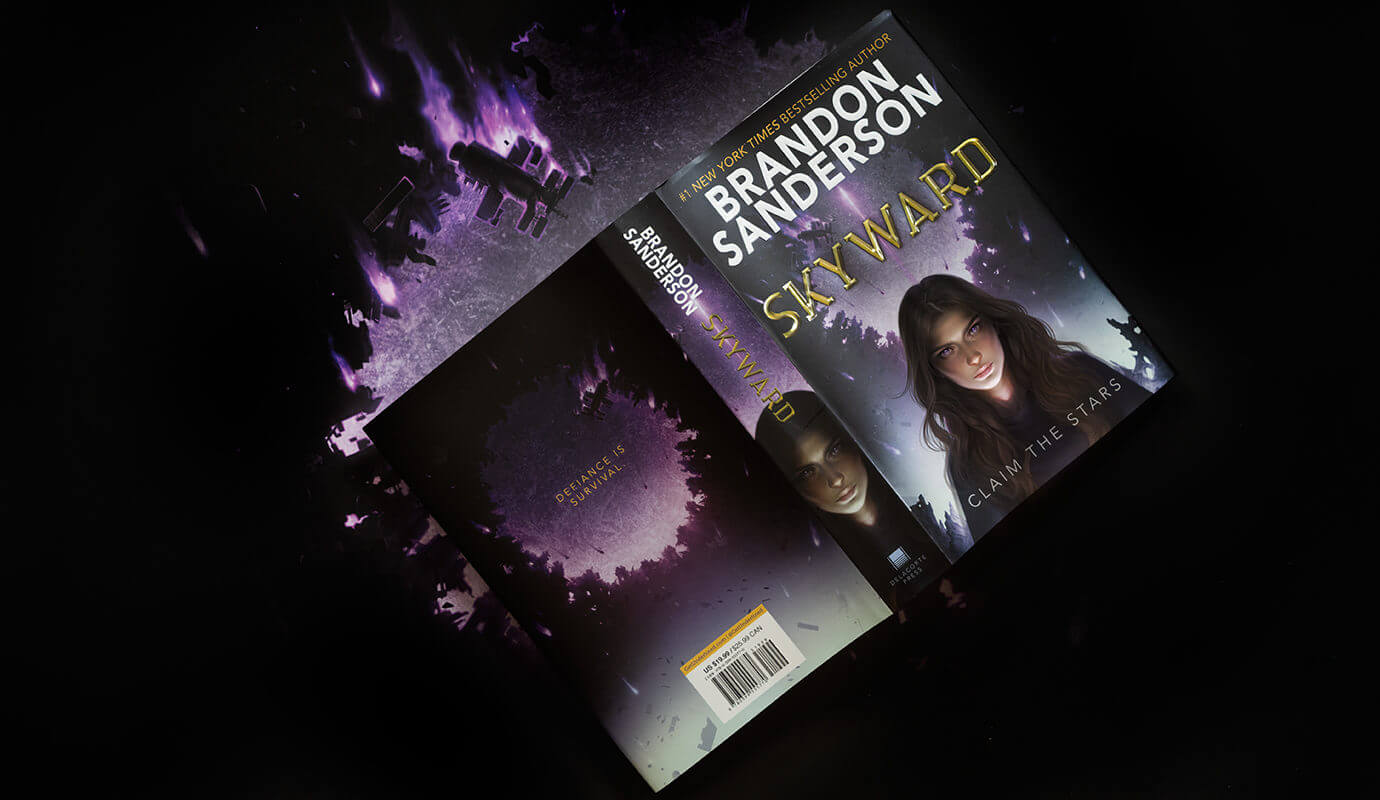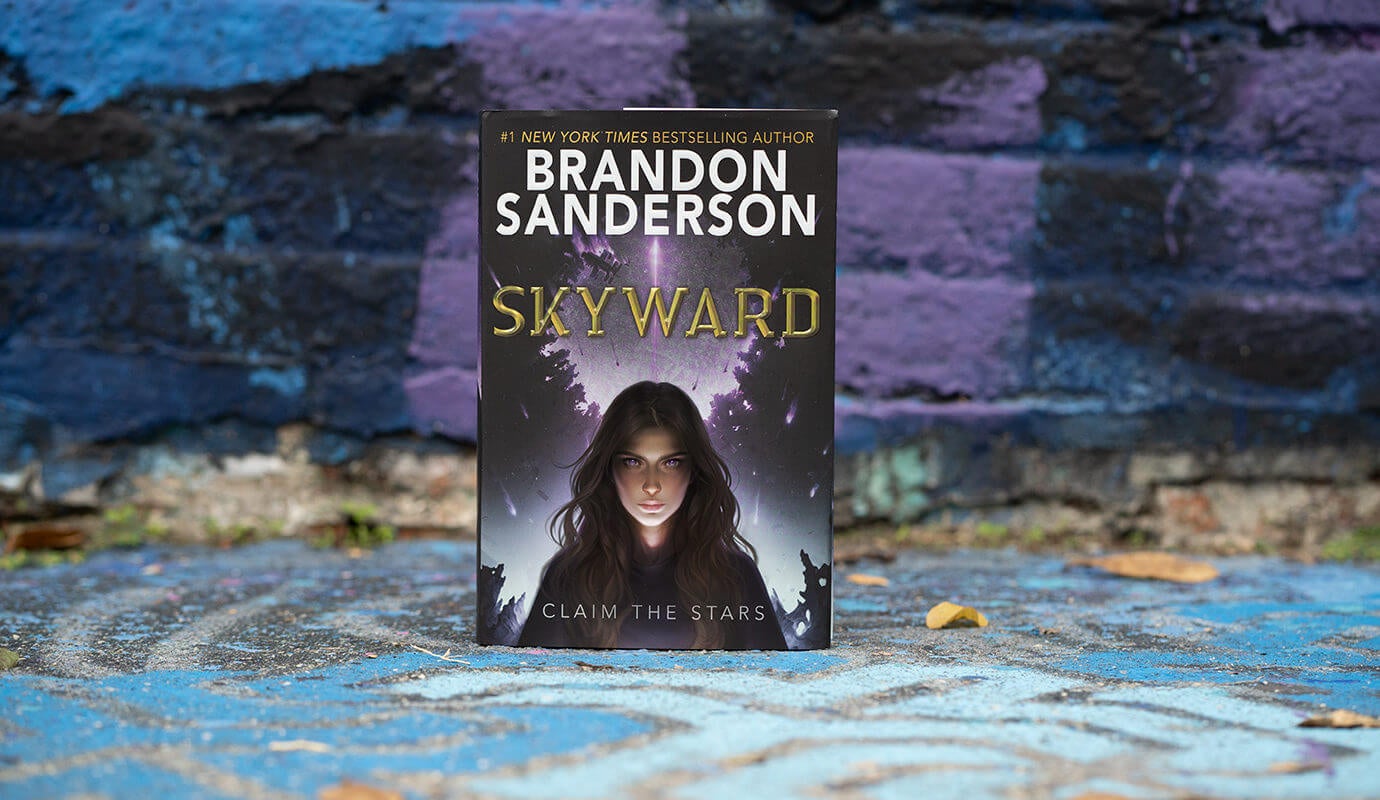#1 New York Times bestselling author Brandon Sanderson knows a thing or two about writing fierce characters. In Skyward, the first book in his new series, Spensa is fearless, determined, and will stop at nothing to reach for the stars, literally. In this article, Brandon tell us his process and advice for writing fierce characters like Spensa!
I’m always looking for a new direction to take in talking about writing. After fifteen years of teaching creative writing and nearly as much time spent podcasting about writing, I sometimes feel like I’m constantly re-treading the same ideas. So when my publisher suggested talking about writing a fierce character, I was quite excited—because I hadn’t ever talked about this before, and in part because it’s not something that I specifically set out to do.
For me, characterization grows from cultivating a story. I generally spend a lot of time outlining my worlds and my plots, but the characters are the more nebulous parts of my stories. No amount of outlining will really let me get to know them—that only happens after I start writing the world through their eyes. So I don’t think I ever set out to write a fierce character, just as I don’t set out to write a timid character, or a thoughtful character, or a determined character. I explore the character’s mind as I describe the world as they see it.
Spensa, from Skyward, is an excellent example of how this process works for me. She’s one of the rare cases where the characterization pre-dates my idea for the story. I began toying with her as a character some five or six years ago. I didn’t have a story or world for her to live in yet, but I was intrigued—I loved the idea of a young girl in a science fiction setting who had been raised on heroic stories from Earth’s past.

Her fierceness started to grow naturally from this concept. A girl who knew she had a warrior’s heritage but who spent her days hiding in caverns and hunting rats. A person with a chip on her shoulder, and perhaps some deeply hidden anxiety about how mundane her life had been so far. Her fierceness, then, grew out of this juxtaposition. I find that a lot of a characters’ motivations come from some sort of deep conflict within them. A difference between the world they imagine for themselves and the world in which they currently reside.
Spensa cracked open for me as a character when I was writing the child version of her from the first draft of the prologue—the moment when she’s telling her father what would happen to her if he had to leave her behind. She immediately spiraled into a complex tale of how she would become feral and hunt for herself and live like someone from one of the old stories. This was a child who could, at a moment’s notice, dream up an entirely new future for herself.
When one speaks of a “fierce” character, I doubt a “wild imagination” is often high on the list of character attributes. But this is indeed where I went for Spensa. In some ways her imagination is a curse, because she can dream up such wonderful futures for herself, and in so doing make the normal world seem that much more drab.

I found that one danger I faced while writing Skyward was making Spensa’s fierceness too overwhelming. Too much confidence in a character, particularly unjustified confidence, can be off-putting. Early readers had this problem, as I hadn’t properly justified where Spensa got all these crazy sayings and ideas. (The part where Gran-Gran tells her a story in one of the early chapters was a late addition to the book, an attempt to give Spensa’s personality some grounding.)
But of course, the thing that really made her work was when she had to take her imagined fierceness and slam it up against harsh reality. That moment of giving her what she’d always thought she wanted—to be a warrior—then making her confront the costs of that lifestyle. Strangely, for me, she ends up far more fierce at the end—after she’s become more subdued at the same time—because her bravado has been forced to fade, replaced by something that might not seem as dynamic at first but which will stand the test of time.
So if you’re interested in writing a character who is fierce, I suppose I’d ask you the questions I asked myself: What does this character interpret as fierce? What causes them to see the world that way? And finally, what do they become when that most essential attribute of their personality is removed? Because none of us are fierce all the time.




